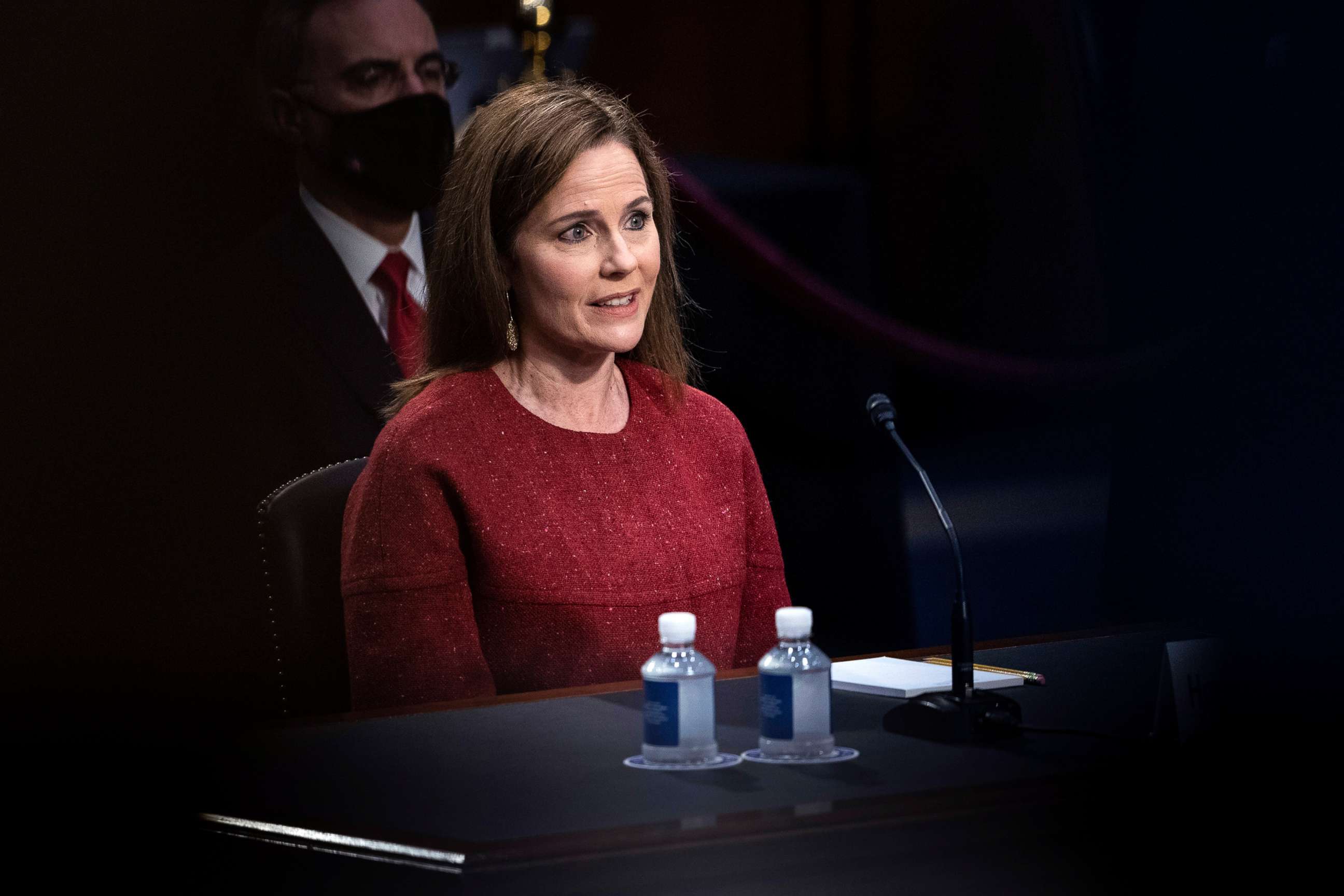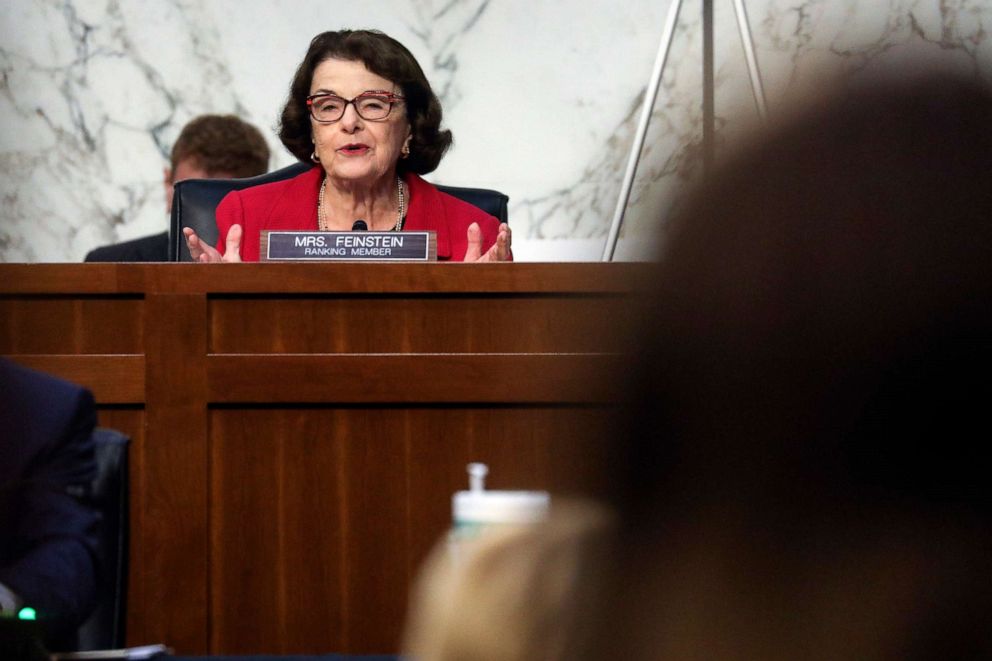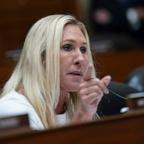Feinstein, recalling more personal stories, this time of friends married after the landmark case on same-sex rights, Obergefell v. Hodges, pivoted her questioning to Barrett’s views on same-sex marriage.
“Do you agree with this particular point of Justice Scalia's view that the U.S. Constitution does not afford gay people the fundamental right to marry?” she asked.
Barrett, again, said she is not Justice Scalia but also did not give insight into her views, citing the "Ginsburg rule" -- a precedent for refusing to answer questions about issues before the Supreme Court.
“Senator Feinstein, as I said to Senator Graham at the outset, if I were confirmed you would be getting Justice Barrett, not Justice Scalia. So I don't think that anybody should assume that just because Justice Scalia decided a decision a certain way that I would, too,” Barrett began.
“Justice Ginsburg used this to describe how a nominee should comport herself at a hearing, no hints, no previews, no forecasts. That had been the practice of nominees before her but everybody calls it the Ginsburg rule because she stated it so concisely and it has been the practice of every nominee since. I'm sorry to not be able to embrace or disavow his position but I can't do that on any point of law,” Barrett said.
Feinstein replied, “that’s too bad.”
“You identify yourself with a justice that you, like him, would be a consistent vote to roll back hard-fought freedoms and protections for the LGBT community. And what I was hoping you would say is that this would be a point of difference where those freedoms would be respected. And you haven't said that,” Feinstein said.
Barrett responded that she has “no agenda.”
“I do want to be clear that I have never discriminated on the basis of sexual preference and would not ever discriminate on the basis of sexual preference. Like racism I think discrimination is abhorrent. On the questions of law, however, because I'm a sitting judge and because you can't answer questions without going through the judicial process, I can't give answers to those very specific questions,” she said.
Asked earlier by Feinstein if the Constitution gives the president the authority to delay an election, Barrett said she didn't want to be a "pundit."
"If I give off the cuff answers, then I would be basically a legal pundit, and I don't think we want judges to be legal pundits," she said.






